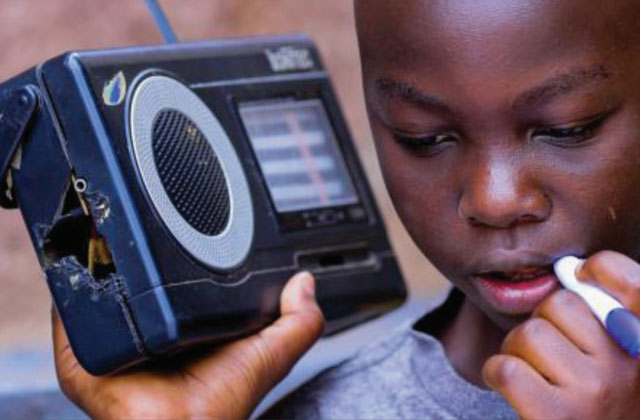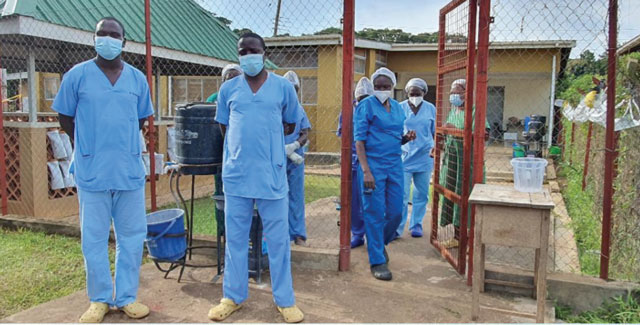










Kampala, Uganda | THE INDEPENDENT | The 20th edition of the State of
Uganda Population Report (SUPRE) that was released in Kampala today has warned that the COVID-19 pandemic threatens to reverse the extraordinary gains made by Uganda in the health, education and tourism sectors.
A key focus through the report was the health sector, with the report however seeing an opportunity for greater use of ICT in particular in the new normal. The report provides options for policy and decision making in relation to population and development matters, showing the importance of investing in the population amidst the global pandemic.
The State of Uganda Population Report 2020 ha stressed that access to safe, affordable and voluntary family planning for example is central to gender equality and women’s empowerment and is a key driver of all the 17 sustainable development goals. In Uganda today, it is estimated that 28 percent of women in reproductive age that would like to use contraception, do not have access to services for one reason or the other.
“The COVID-19 pandemic has exacerbated the situation limiting women and girls’ access to commodities and supplies, such as menstrual health and hygiene items that are central to adolescents and women’s health and empowerment, and the ability to exercise SRHR, further, increasing risk of unintended pregnancies, sexually transmitted infections, Gender Based Violence and maternal deaths,” the report said.

The report warned that “the COVID-19 pandemic threatens to reverse the extraordinary gains made by Uganda in improving health outcomes given that the knock-on impact of COVID-19 on communicable diseases, notably HIV/AIDS, Malaria, TB and other respiratory infections in terms of incremental deaths may outweigh the direct impact of the virus.”
The report was released at Sheraton Hotel today by the National Population Council (NPC) in partnership with the United Nations Population Fund (UNFPA), and, was launched concurrently with the State of World Population Report (SWoP).
The theme for this year’s State of Uganda Population Report is “Impact of COVID-19 on Population and Development: Challenges, Opportunities and Preparedness”.
The launch provides an opportunity for Ugandans and development partners to take stock of the population and development concerns in the country that impede the achievement of national development and undermine the progress towards achieving quality of life for the people.
Uganda’s current population is estimated at 45.7 million, which is a high 3.6% rise in five years, with a massive 46% of them aged 0-14 years. Life expectancy is 64 years.
Maternal mortality ratio (MMR – deaths per 100,000 live births) for Uganda was according to the latest figures of 2017, at a high 375. Tanzania is at 524, South Sudan 1,150, Zimbabwe 458, Rwanda 284. Developed countries are at – USA 19, UK 7, New Zealand 9.
Population media awards 2020




Journalism award winners
One of the highlights of the launch, was the awards for excellence in journalism for coverage of population issues.
New Vision’s Agnes Kyotalengerire was named the Journalist of the Year 2020, with the award for print going to Ian Katusiime and Sabiti from The Independent, while the broadcast awards award went to Ivan Kaahwa of UBC for TV, and Henry Lematia of Radio Pacis News in Gulu the radio prize.
The award for the best Online story was deferred because of the poor quality of entries, with the Award Judges challenging newsrooms to make the most use of integration and digital media to improve their online coverage.
The overall winner got a plaque and sh2million cash prize, while the others got sh1million each.
Award winning story
Bad news over LDU recruitment https://t.co/Qs4QmkKPN9 pic.twitter.com/z5gstXHjXc
— The Independent (@UGIndependent) July 28, 2019
Tourism and education
The impact of COVID-19 on the economy largely emanated from policies and measures adopted to curb the spread of the virus, including the closure of schools, restrictions on internal and international travel among others.
While the COVID-19 pandemic has had a major negative impact on the education, it is proving to be an eye opener for re-imagining education delivery in the Uganda There is, indeed, strong recognition that the current paradigm of education delivery in Uganda cannot persist if we are to achieve SDG4, which emphasizes equitable quality education, and promotion of lifelong learning opportunities.
FULL VIDEO UGANDA LAUNCH (click)
Happening: Launch of the State of Uganda Population Reporthttps://t.co/EgrA2q7BIi
— NPC UGANDA (@NPC_Uganda) November 26, 2020
The report urges the Ministry to urgently develop a national ICT framework in the education policy to enable easy access to education services for learners
The tourism sector was another focused on, as it is one of the hardest hit by COVID 19 as the Government issued travel warning to people travelling to, and out of Uganda, under its policy “social distancing” in order to prevent and contain infections. Proceeds from tourism fell by USD 324.74 million to USD 266.02 million in the 2nd half of 2019/20 from USD 590.76 million in 2018/19.
 The Independent Uganda: You get the Truth we Pay the Price
The Independent Uganda: You get the Truth we Pay the Price



